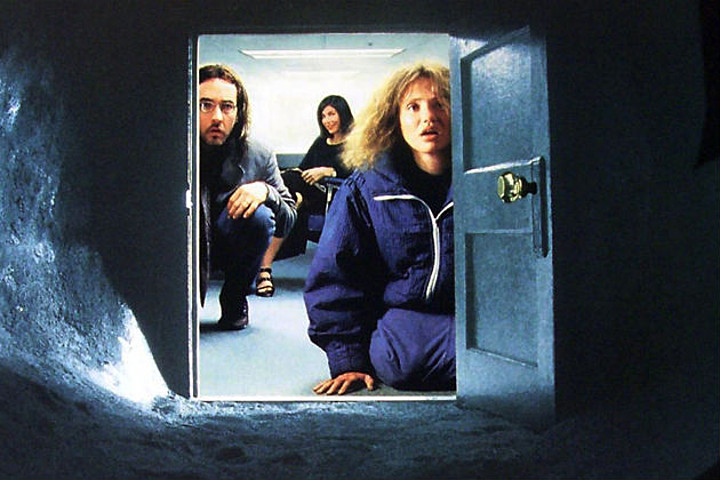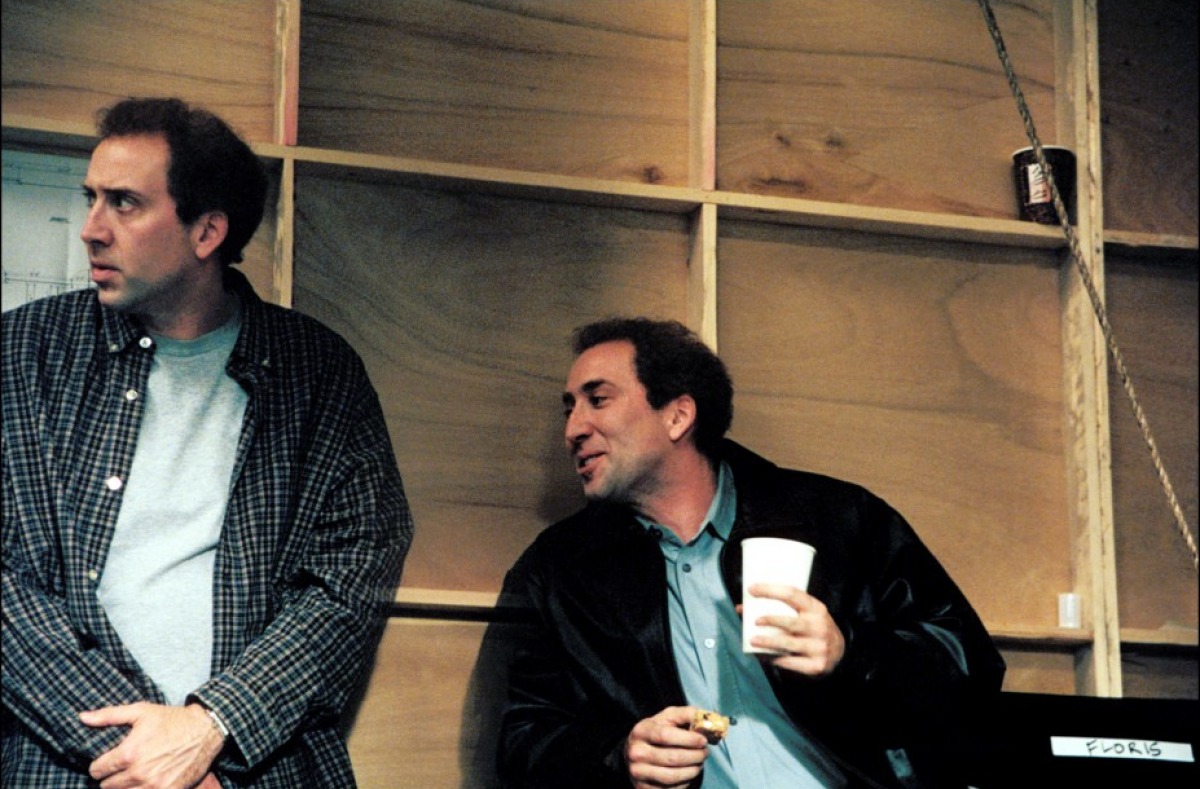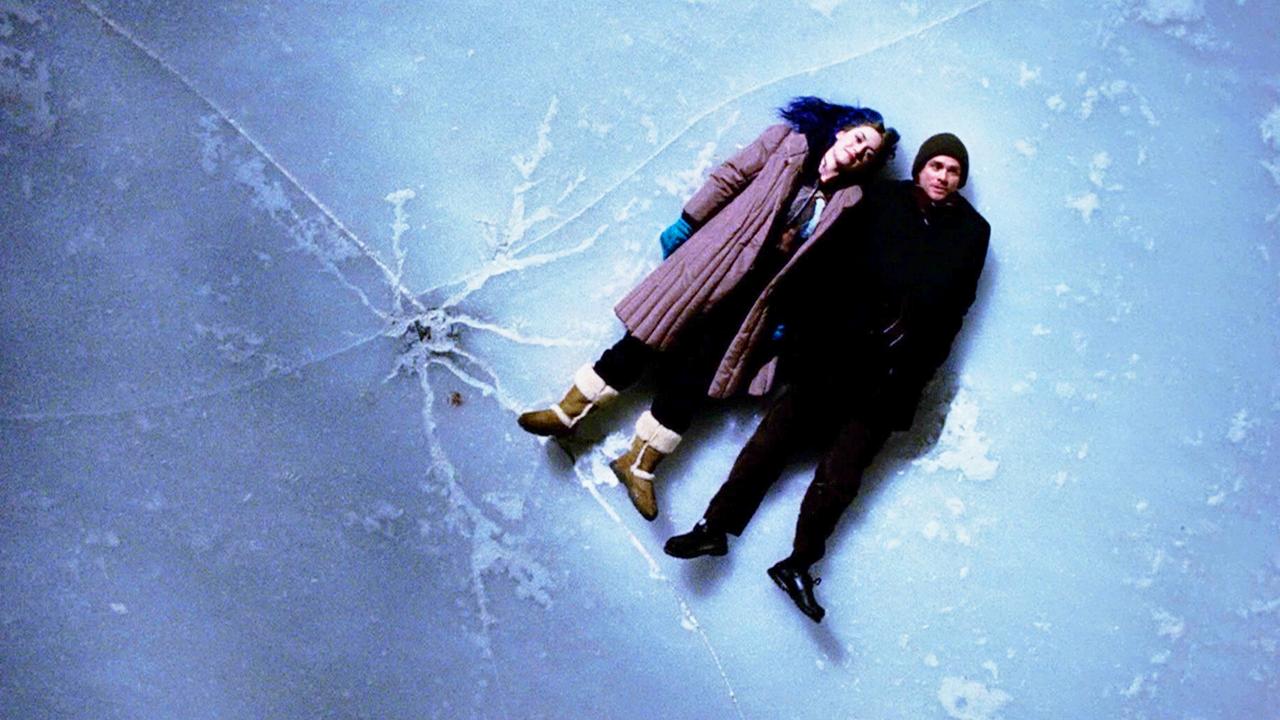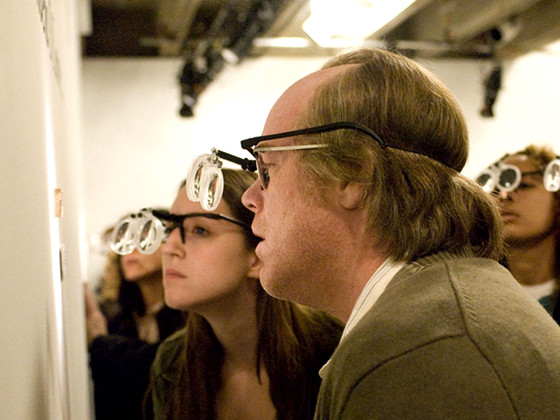4. Being John Malkovich (1999)

Important disclaimer: we’ve now reached the cream of the crop, which means that, from this point on, there’s no such thing as wrong answers but rather, differing preferences concerning all-time great films.
‘Being John Malkovich’ centers around Craig (John Cusack), a disillusioned middle-aged puppeteer struggling to find his bearings who suddenly stumbles upon a portal that leads him straight into the head of Hollywood actor John Malkovich (who plays himself). With this brilliantly absurd, off-the-rails premise, Charlie Kaufman and director Spike Jonze took the world by storm and instantly established themselves as two of the most singular voices in the industry.
A thousand things could’ve gone wrong with a conceptual juggernaut like ‘Being John Malkovich’, but somehow, the whole thing worked by virtue of its sheer audacity. Right from the gate, Kaufman found the perfect marriage between his cerebral high-concepts and philosophical ruminations, juggling around abstract ideas about the human consciousness, voyeurism and pop culture without overstaying its welcome or losing sight of its campy conceit. In fact, ‘Being John Malkovich’ remains so refreshing, exhilarating and rewatchable to this day because it functions as a comedy above all other things—never taking itself 100% seriously but pulling no punches and running with its concept anyways. That’s not to say it should be dismissed as a vacuous exercise on meta-fiction, far from it. ‘Being John Malkovich’ isn’t afraid to take a dark turn when it needs to, and would have fallen flat if Kaufman hadn’t infuse it with a healthy dose of nihilism and existential anguish, most notably through the spiritual plights of its self-loathing protagonist.
When it’s all said and done, chances are this is the film we will associate Charlie Kaufman with the most. As a textbook example of his many strengths and eccentricities as a screenwriter, it’s also an ideal entry point for those eager to dive into his work.
3. Adaptation (2002)

If ‘Being John Malkovich’ pushed the envelope on meta commentary and self-referentiality, ‘Adaptation’ took it to completely new heights by challenging our preconceived notions about film and pulling the rug out from under us. In layman’s terms, ’Adaptation’ is a film about someone writing a film—and miserably struggling to do so. Nicolas Cage plays none other than Charlie Kaufman himself (yeah, you read that right) who we witness hopelessly stuck in front of his typewriter, suffering from a classic case of writer’s block as the deadline for his next script (an adaptation of ‘The Orchid Thief’) creeps up on him. Faced with this conundrum, Kaufman comes up with a brilliant solution: to essentially write himself into the story as a fourth wall-breaking ‘deus ex machina’, thus turning his undeveloped pulpy noir into a fascinating window into his own creative process.
Leave it to Kaufman to insert himself as the anchor of his movie while painting his character as a pathetically insecure, socially-inept and self-obsessed artist—though in hindsight it seems like a logical next step given how similar his on-screen alter egos are. Cage not only plays Kaufman but his fictional twin brother Donald, also a budding writer though with markedly conflicting aspirations. While Charlie racks his brains at home trying to come up with the magnum opus that will finally bestow him with the prestige and acclaim he so desperately craves, things come easier for Donald, who manages to sell one of his clichéd, fluff scripts for more than six figures.
This brotherly juxtaposition serves to poke some fun at the same risk-averse, focus-tested industry that dismisses high-minded artistry like Charlie’s in favor of lowbrow entertainment and takes on a whole new dimension when Kaufman cheekily delivers exactly what the film is fervidly railing against—a vapid and over-the-top Hollywood-esque climax.
2. Eternal Sunshine of Spotless Mind (2004)

What are the roots of our identity? Are we just the sum of our memories? And if given the chance, would you erase unpleasant ones?
‘Eternal Sunshine of Spotless Mind’ is a film built around these intriguing ideas that delivers a full-blown philosophical thesis about human consciousness in the guise of a sappy romantic drama. Jim Carrey and Kate Winslet star as a recently separated couple who decide to erase all memory of each other following a messy break-up. However, the former has a sudden change of heart in the middle of his surgical operation, triggering a cat-and-mouse game within his subconscious as he weaves through scattered flashbacks of his relationship. Capitalizing on this imaginative conceit, Kaufman burrows deep into one of his signature motifs—that of distraught individuals desperately attempting to escape the prison of their own minds. In this case, it’s not through a portal to John Malkovich’s head or a warehouse replica of New York City, but through the very same experiences ingrained in their memory.
Though it may lack the intellectual weight of certain Kaufman’s scripts, ‘Eternal Sunshine’ more than makes up for it by having the strongest emotional chore, which probably accounts for this being his most successful film to date. The movie concedes that the past can be painful, but suggests that only by acknowledging and owning up to our own mistakes can we truly move forward, heal and learn from them. One shouldn’t hang on to matters of the past, but that doesn’t mean you should run from them either. Good or bad, memories are inherent pieces of your true inner self, and should be cherished as such.
1. Synecdoche New York (2008)

Crowning one film over the previous three honestly feels like splitting hairs, but overall, it’s hard to look past ‘Synecdoche New York’ as the summative triumph of Charlie Kaufman’s career.
Taking a cue from ‘8½’ and ‘Barton Fink’, this film meditates on the meaning of art as an extension of life and vice versa, swirling in the gray line that divides both through a labyrinthine meta-narrative that orbits around Caden Cotard (Philip Seymour Hoffman). Caden is a crestfallen playwright who begins to ponder about his mortality and legacy, questioning whether he’s truly created any transcendent work that will endure his own lifespan and justify his chronic torment. Upon receiving a MacArthur Foundation award which grants him unlimited budget for his next project, Caden decides to mount a gargantuan stage production inside an empty warehouse with the hopes of conceiving his crowning achievement.
This play-within-a-film serves to accentuate Caden’s delusions of grandeur as well as to contemplate the futility of his pursuit as he gets lost in his own creative process. Caden’s unyielding commitment and unbridled ambition ultimately proves unavailing as his play never sees the light of day. But Kaufman implies that, perhaps, all art has inherent worth, and that the mere process of creating something can be therapeutic in its own right. Caden starts off as a self-absorbed snob who gradually learns that chasing perfection is not a realistic goal, but realizing how insignificant his work is (and by extension, himself too) frees him from a massive burden and helps him come to terms with his own mortality.
By virtue of its nature, ‘Synecdoche New York’ is a film that allows for different reads. You can dismiss the whole thing as a bloated exercise on nihilism or a blatant case of nauseating narcissism. Alternatively, it can also be viewed as the director’s attempt at reckoning with his own hubris and an honest self-examination of his body of work. At its core, ‘Synecdoche New York’ is a story about ego, mortality and purpose that somehow triumphs without suffocating in its own self-indulgence—which, come to think of it, pretty much sums up Charlie Kaufman’s entire career.